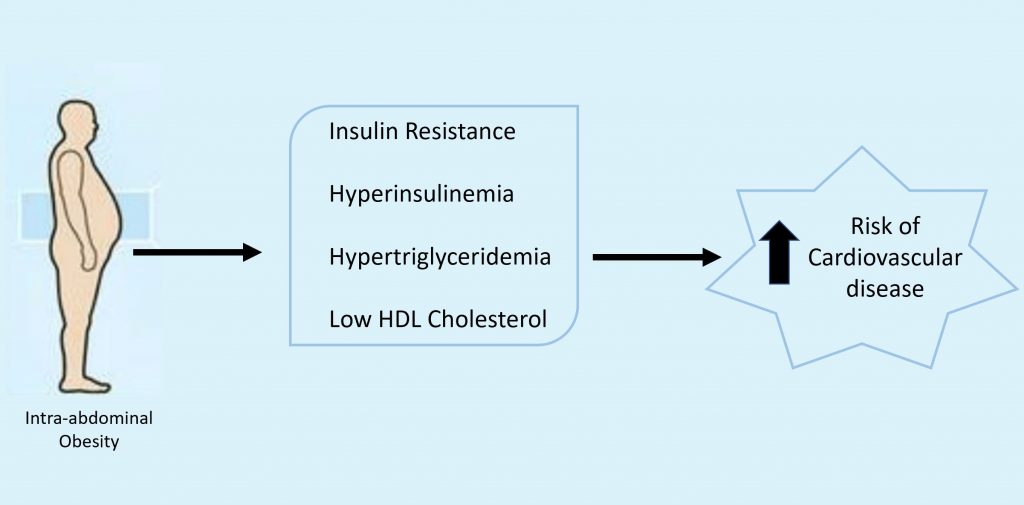The Question
How does overeating lead to obesity through chronic low-grade inflammation? Are there ways to inhibit inflammation in cells?
While obesity might be due to some genetic predisposition, it is not the sole cause. Most often, obesity results from consuming food in excess. Overeating places metabolic stress on the body as it cannot metabolize the nutrients fast enough. The excess energy consumed becomes stored as fat, which over time will build up to result in weight gain and chronic inflammation (5).
Obesity is particularly dangerous as it can have many further health implications (5) such as high blood pressure, high cholesterol, and heart disease, which are major risk factors in metabolic syndrome. Metabolic syndrome serves as an indication of serious heart problems. If not recognized and treated, metabolic syndrome can continue to develop into heart disease and cardiovascular disease (6).

Image adopted from the “Official Journal of the International Chair on Cardiometabolic Risk” (7).
In understanding how obesity occurs, it is necessary to first understand the negative effects of overeating. How does overeating trigger the Inflammatory Signaling Pathway, the major pathway responsible for dealing with metabolic stress? In this pathway, a critical protein to understand is Nuclear Factor kappa-B (NF-kB), which is responsible for triggering inflammation in cells. How does activation of the Inflammatory Signaling Pathway trigger activity in NF-kB? How is chronic low-grade inflammation initiated and why does this reaction lead to obesity?
Recent Comments